- A
- A
- A
Home >
Academics >
Post-Secondary Programmes >
International Baccalaureate Diploma Programme
International Baccalaureate Diploma Programme
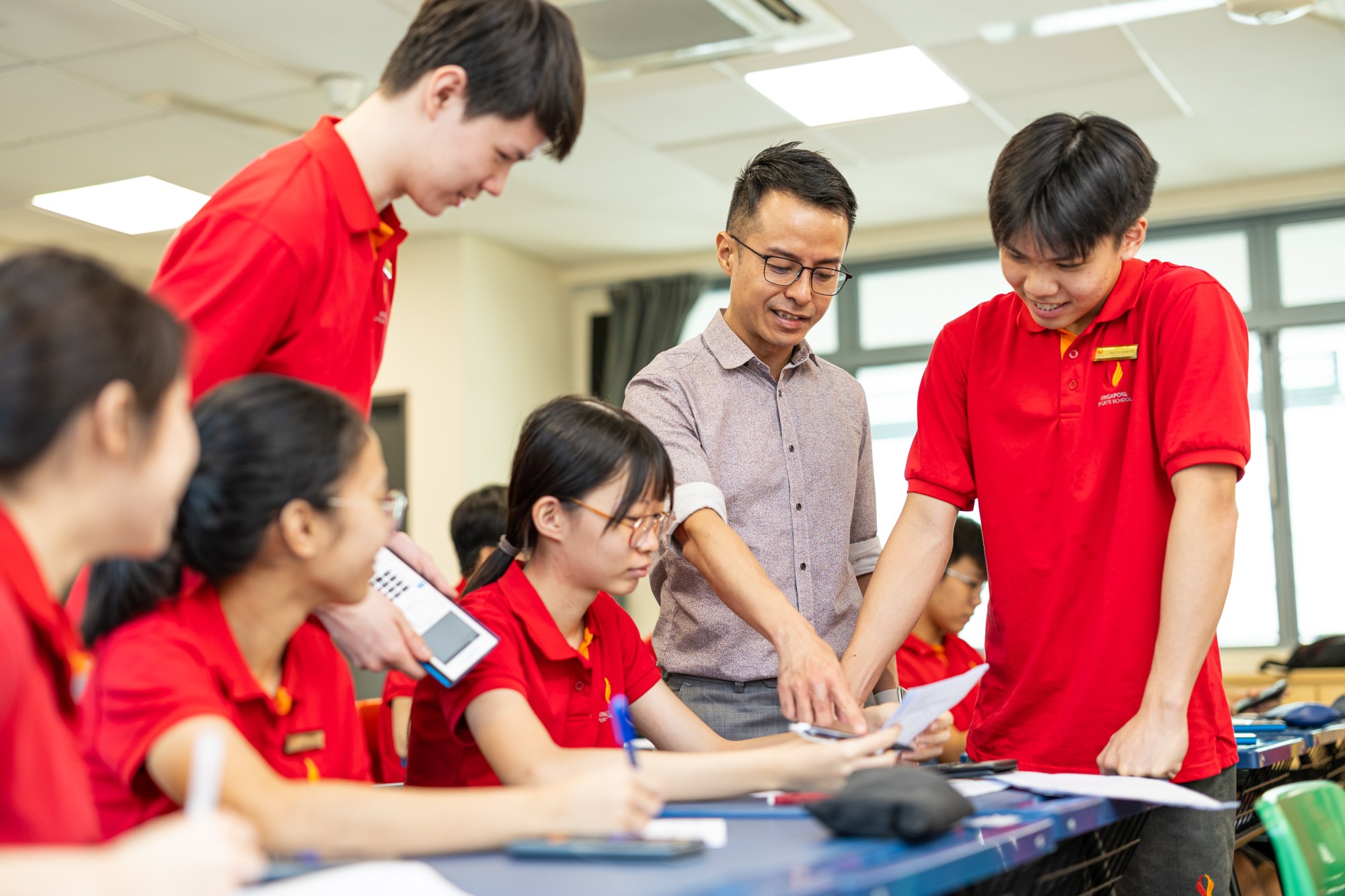
The International Baccalaureate Programme, accredited by IB Organization is catered for those who prefer a broad-based academic programme leading to university. This through-train pathway provides an uninterrupted sport development pathway for aspiring athletes to concurrently achieve their dual goals in sports and studies.
Sports School has been recognised as an Athlete Friendly Education Centre by the World Academy of Sport (WAoS) as it offers an extended pathway for high-performing IBDP student-athletes. Those on the Extended IBDP can stretch the completion of their studies by up to three years as compared to the usual two years in order to balance sports training and school commitments. They have greater flexibility in planning their academic schedule to match their long-term sport goals and competitions. Student-athletes on the extended pathway will attain the same qualifications as students on the usual 2-year pathway recognised for university admission.
   |
ABOUT THE IBDP
OVERVIEW
The philosophy about the nature of education is the driving force behind the International Baccalaureate Diploma Programme and is expressed through three elements: The IB mission statement, learner profile and the fundamental principles on which the curriculum is based and which continue to inspire its development.
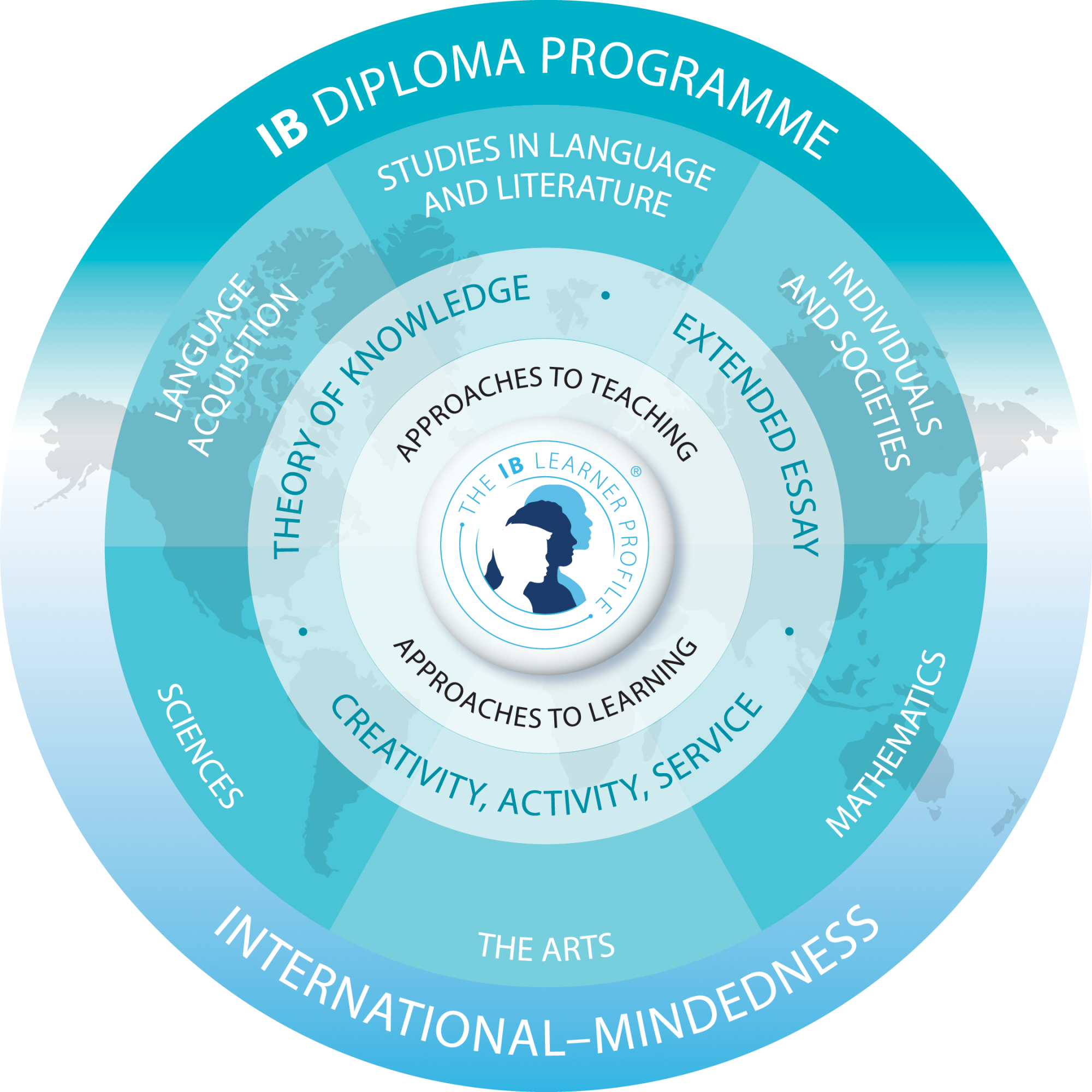
Mission
The International Baccalaureate® aims to develop inquiring, knowledgeable and caring young people who help to create a better and more peaceful world through intercultural understanding and respect.
To this end the organization works with schools, governments and international organizations to develop challenging programmes of international education and rigorous assessment.
These programmes encourage students across the world to become active, compassionate and lifelong learners who understand that other people, with their differences, can also be right.
Through the International Baccalaureate Diploma Programme (IBDP), the Singapore Sports School:
To this end the organization works with schools, governments and international organizations to develop challenging programmes of international education and rigorous assessment.
These programmes encourage students across the world to become active, compassionate and lifelong learners who understand that other people, with their differences, can also be right.
Through the International Baccalaureate Diploma Programme (IBDP), the Singapore Sports School:
- Creates opportunities for student-athletes to work collaboratively and explore solutions to real-world problems in teams.
- Empower student-athletes to make reasoned and ethical judgments, and develop the flexibility, perseverance and confidence they need in order to bring about meaningful change.
- Inspires student-athletes to ask questions, pursue personal aspirations, set challenging goals and to develop the persistence to achieve them.
- Exhorts student-athletes to consider different perspectives and respond with respect and empathy as part of international mindedness.
Learner Profile
The International Baccalaureate® learner profile describes a broad range of human capacities and responsibilities that go beyond academic success. They imply a commitment to help all members of the school community learn to respect themselves, others and the world around them.
Through the IBDP, the Singapore Sports School seek to develop the IB Learner Profile (inquirers, knowledgeable, thinkers, communicators, principled, open minded, caring, risk-takers, balanced and reflective) in our student-athletes to become Champions in Sports, for Sports and in Life, in the 21st Century.
Through the IBDP, the Singapore Sports School seek to develop the IB Learner Profile (inquirers, knowledgeable, thinkers, communicators, principled, open minded, caring, risk-takers, balanced and reflective) in our student-athletes to become Champions in Sports, for Sports and in Life, in the 21st Century.
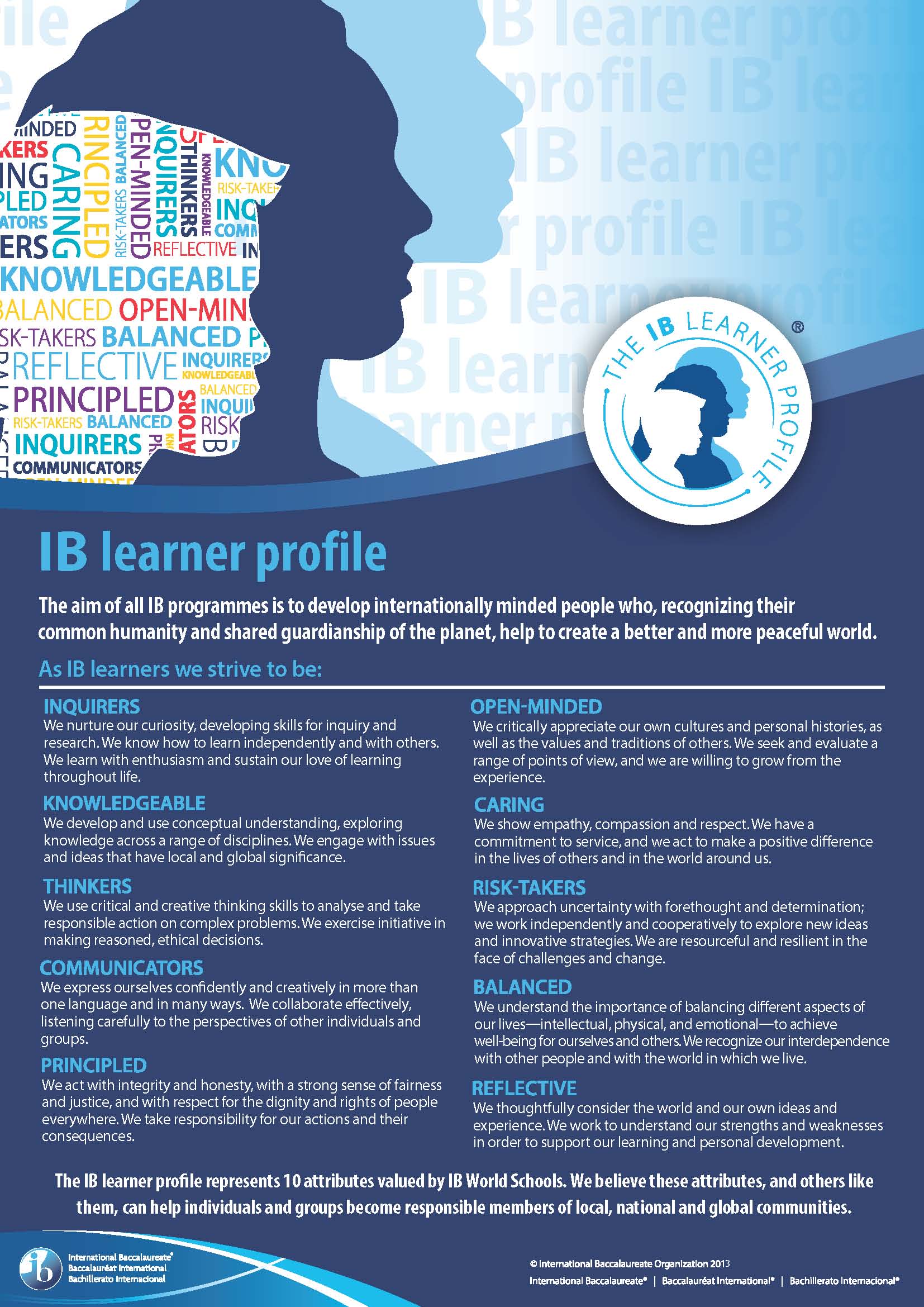
Click to enlarge image
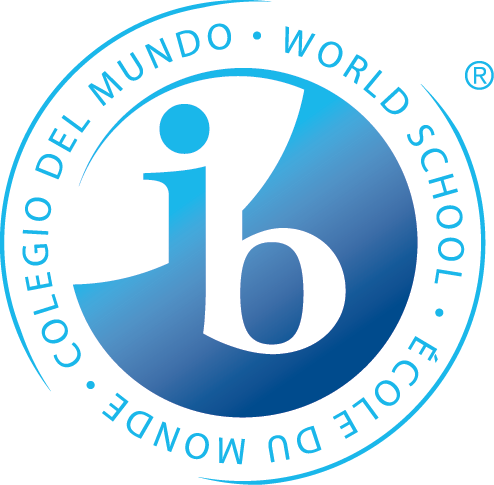 
|
SUBJECTS
Students study six courses at Higher Level (HL) or Standard Level (SL):
- Three HL and three SL
- One subject is chosen each from Groups 1 to 5
- Sixth subject is another subject from Group 3 or 4
- Three Core subjects (Theory of Knowledge, Extended Essay and CAS)
SUBJECT GROUPS
|
Group 1: Studies In Language And Literature
English A: Language and Literature HL/SL
Chinese A: Language and Literature SL
|
|
Group 2: Language Acquisition
Malay B SL
Mandarin B HL/SL
Tamil B SL
Mandarin B ab initio SL
|
| Group 3: Individuals And Societies Economics HL/SL Geography HL/SL History HL/SL http://www.ibo.org/programmes/diploma-programme/curriculum/individuals-and-societies/ |
| Group 4: Sciences Biology HL/SL Chemistry HL/SL Physics HL/SL Sports Exercise and Health Science HL/SL http://www.ibo.org/programmes/diploma-programme/curriculum/sciences/ |
| Group 5: Mathematics Mathematics: Analysis and Approaches HL/SL http://www.ibo.org/programmes/diploma-programme/curriculum/mathematics/ |
CORE PROGRAMME
| Theory Of Knowledge Theory of Knowledge (TOK) plays a special role in the IBDP by providing an opportunity for students to reflect on the nature of knowledge, and on how we know what we claim to know. It is one of three mandatory components of the DP core. The TOK requirement is central to the educational philosophy of the DP. In addition, TOK prompts students to:
TOK also provides coherence for the student by linking academic subject areas as well as transcending them.
It therefore demonstrates the ways in which the student can apply their knowledge with greater awareness and credibility.
|
| Extended Essay The Extended Essay (EE) is a required component of the IBDP. It is an independent, self-directed piece of research, finishing with a 4,000-word paper. The EE provides:
Through the research process for EE, students develop skills in:
Participation in this process develops the capacity to analyse, synthesise and evaluate knowledge. How is study of the Extended Essay structured? Students are supported throughout the process of researching and writing the EE, with advice and guidance from a supervisor who is usually a teacher at the school. The IB recommends that students follow the completion of the written essay with a short, concluding interview with their supervisor. This is known as viva voce. The EE and interview can be a valuable stimulus for discussion in countries where interviews are required prior to acceptance for employment or for a place at university. https://ibo.org/programmes/diploma-programme/curriculum/dp-core/extended-essay/what-is-the-extended-essay/ |
| Creativity, Activity, Service Creativity, Activity, Service (CAS) is one of the three essential elements that every student must complete as part of the DP. It is not formally assessed. However, students reflect on their CAS experiences as part of the DP, and provide evidence of achieving the seven learning outcomes for CAS. How is Creativity, Activity, Service structured? The three strands of CAS, which are often interwoven with particular activities, are characterised as follows: Creativity – Arts, and other experiences that involve creative thinking Activity – Physical exertion contributing to a healthy lifestyle, complementing academic work elsewhere in the DP Service – an unpaid and voluntary exchange that has a learning benefit for the student. The rights, dignity and autonomy of all those involved are respected. In order to demonstrate these concepts, students are required to undertake a CAS Project. The project challenges students to:
What is the significance of CAS? CAS enables students to enhance their personal and interpersonal development by learning through experience. It provides opportunities for self-determination and collaboration with others, fostering a sense of accomplishment and enjoyment from their work. At the same time, CAS is an important counterbalance to the academic pressures of the DP. http://www.ibo.org/programmes/diploma-programme/curriculum/creativity-activity-and-service/ |
GRADING
IBDP Assessment Structure and Point System
Point System
- Grades awarded for each course range from 1 (lowest) to 7 (highest)
- Maximum a student can score for six subjects is 42 points
- Up to 3 additional points are awarded for combined results on Theory of Knowledge and Extended Essay
- Highest total: 45 points
- To obtain the Diploma, a student has to gain at least 24 points, subject to certain minimum levels of performance across the whole programme, including TOK and EE, and to satisfactory participation in Creativity, Activity, Service
TESTIMONIALS
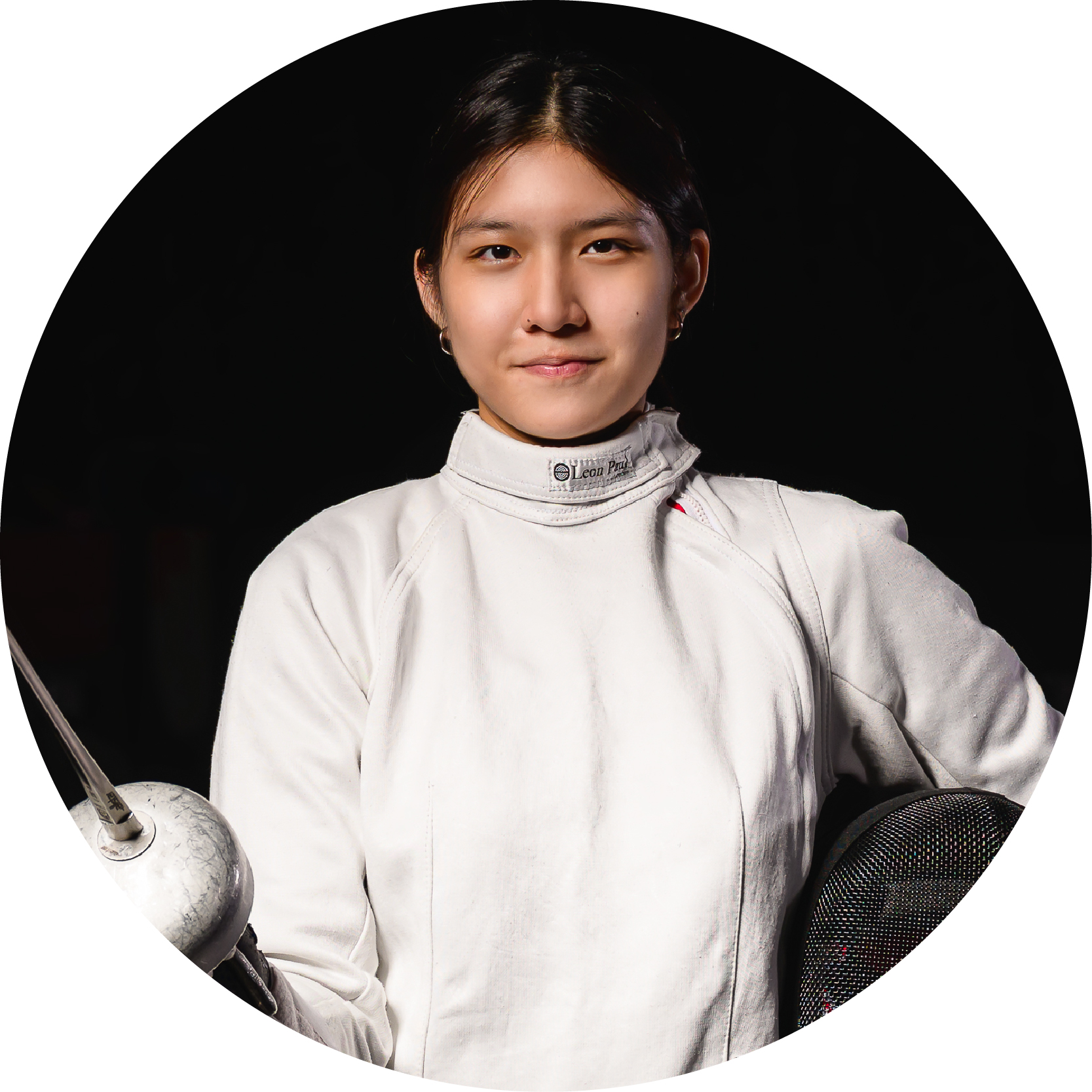 |
"The IBDP programme has given me the opportunity to pursue both studies and sports. The extended IB programme allowed me to take 3 years instead of 2 years to complete my diploma, helping to distribute the workload and to balance the demands of high-performance sports and intense academics, which has contributed greatly to my academic and sporting success. When I first joined Sports School, my goal was to qualify for SEA Games and win a medal. The IB programme has given me the time and flexibility to develop my fencing skills while continuing my education. As a national fencer competing internationally, I often had to balance intense training schedules, overseas competitions and academic deadlines. The IB programme has challenged me intellectually while strengthening my discipline and resilience, teaching me time management skills. Despite all the challenges, with the help of my teachers, coaches and parents, I was able to work towards my goals, medalling at the 2025 SEA Games and receiving good IB results. This process contributes to my growth as a student and as an athlete." Esther Tan (Fencing, extended IBDP, Class of 2025) Medallist at 2025 SEA Games Recipient of Annabel Pennefather Excellence Award 2026 |
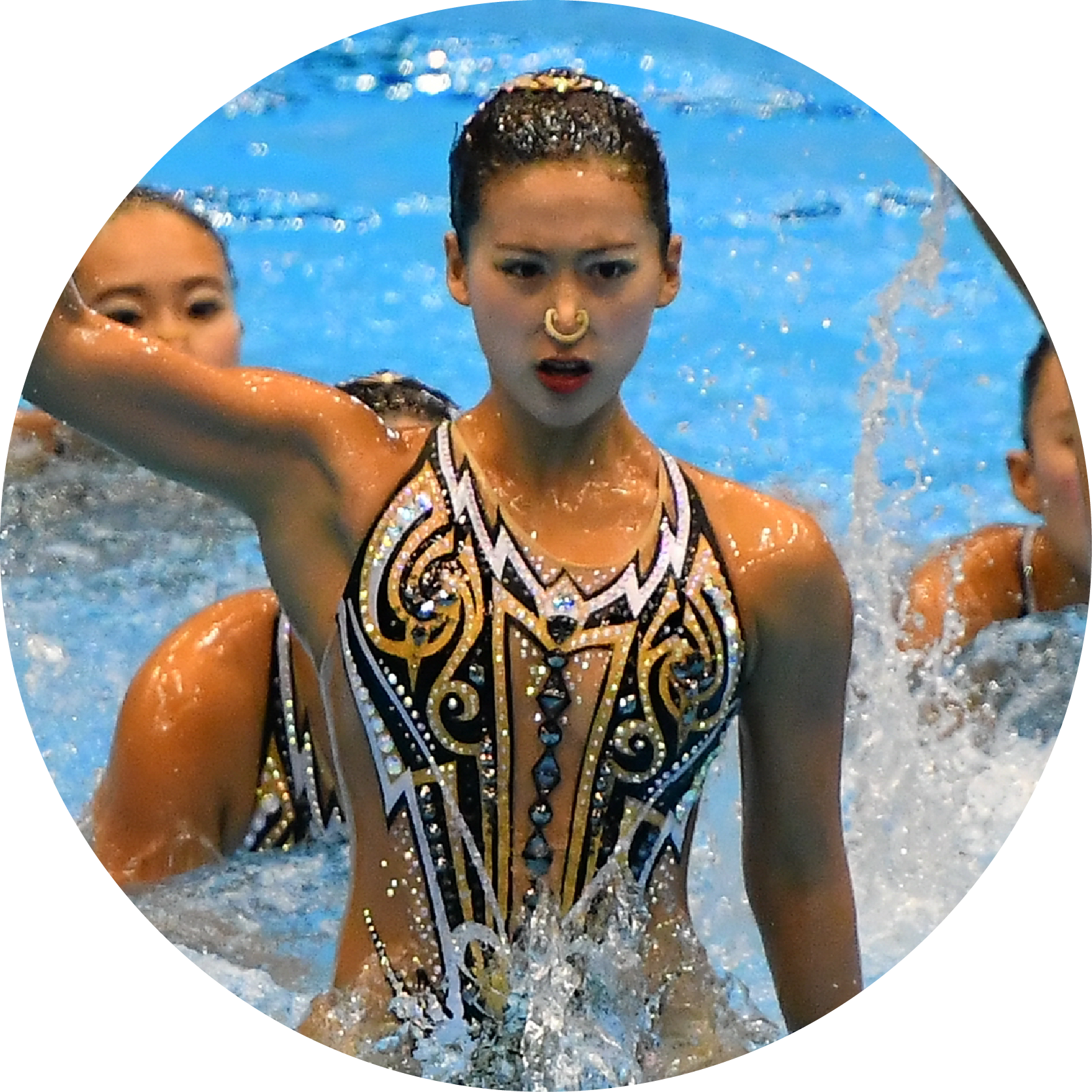
|
“Not only does the IBDP programme encourage critical thinking through subjects like Theory of Knowledge, it also enforces independence through Internal Assessments and Creativity, Activity and Service projects. I’m extremely grateful for Singapore Sport School’s Extended Programme which allowed me to fully enjoy these benefits while still achieving my sporting goals. It enabled me to conquer major milestones, such as the Asian Games and IB exams in the same month. Ultimately, I was able to achieve 5th place in the Games, the new highest ranking for Singapore, and my IB results allowed me to apply for my desired university courses.” Claire Tan (Individual Programme - Artistic Swimming, IBDP, Class of 2023) |
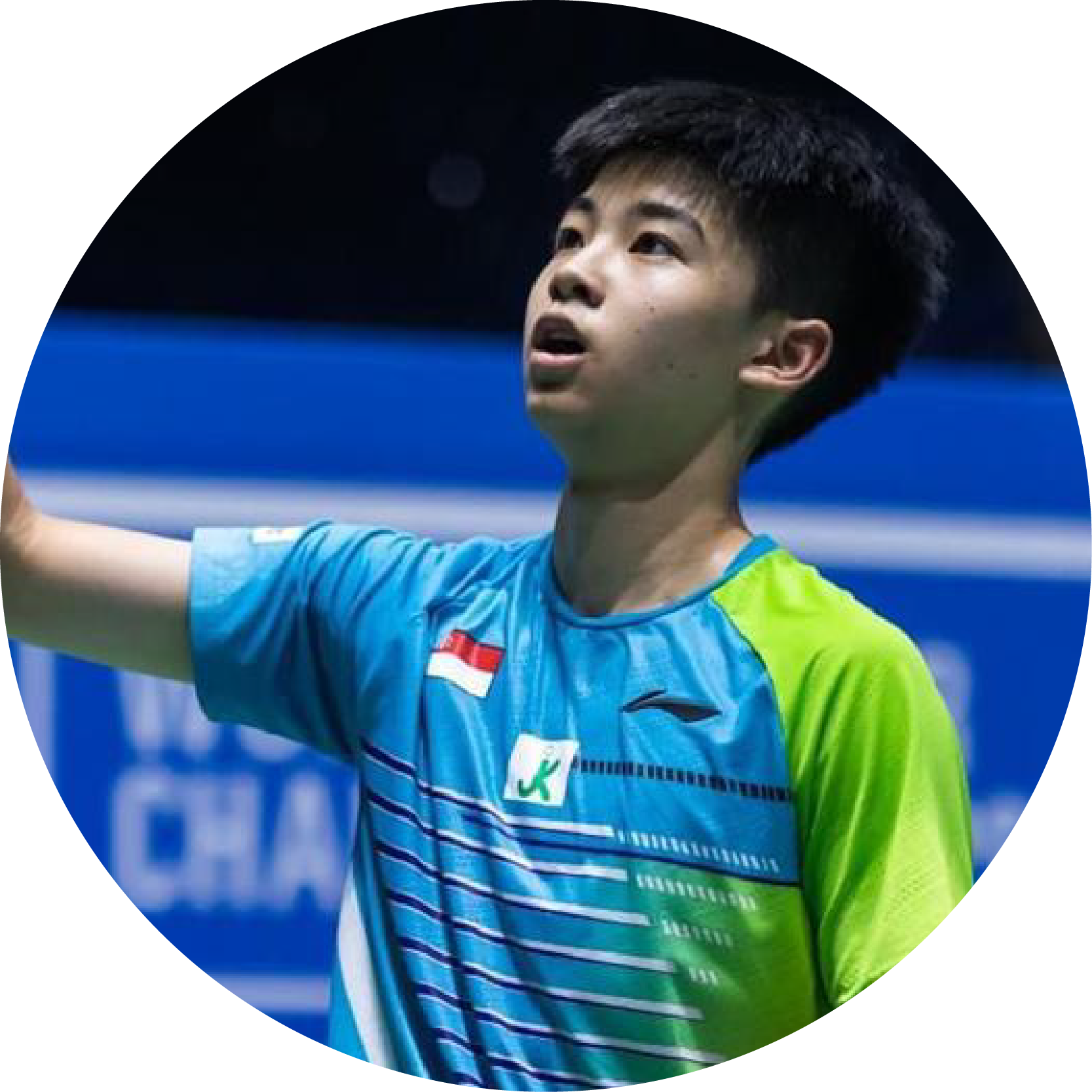 |
"Overall, I feel that IBDP has allowed me to better juggle my sports and academics, as I was able to complete assignments at my own pace while regularly attending trainings and preparing for competitions. Despite the fact I had to make many sacrifices in terms of free time, it is an experience that I wouldn't be able to find elsewhere, and I am definitely thankful for the opportunity to challenge myself and do both sports and studies concurrently. It also helped me better understand my strengths and areas of improvement, which will allow me to improve overall as a person in future.” Remus Ng (Badminton, IBDP, Class of 2023) |